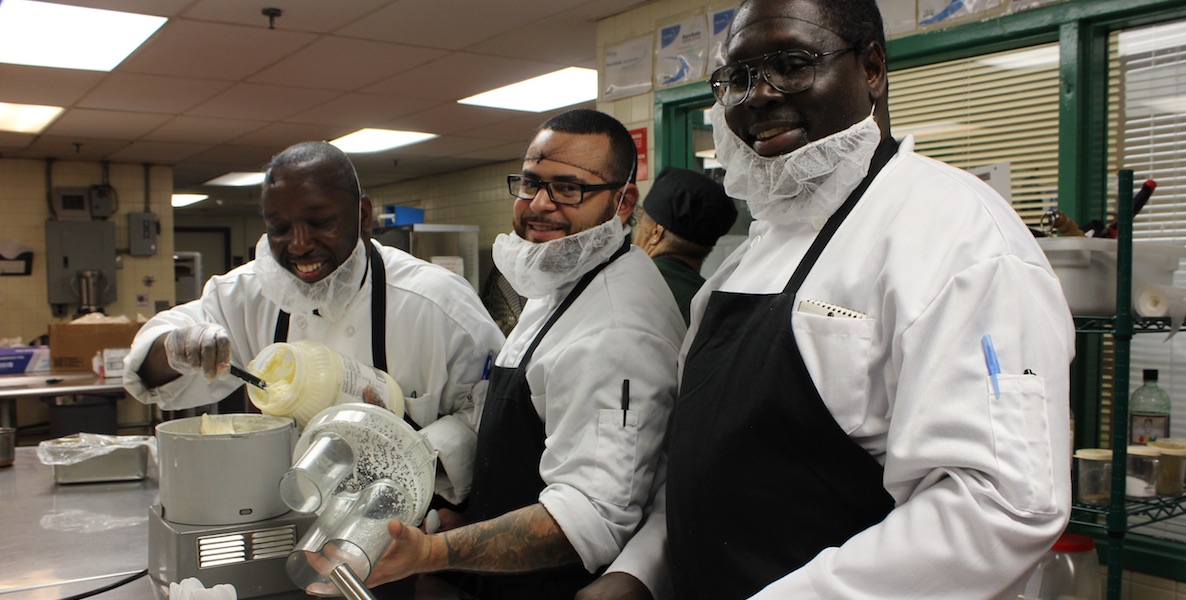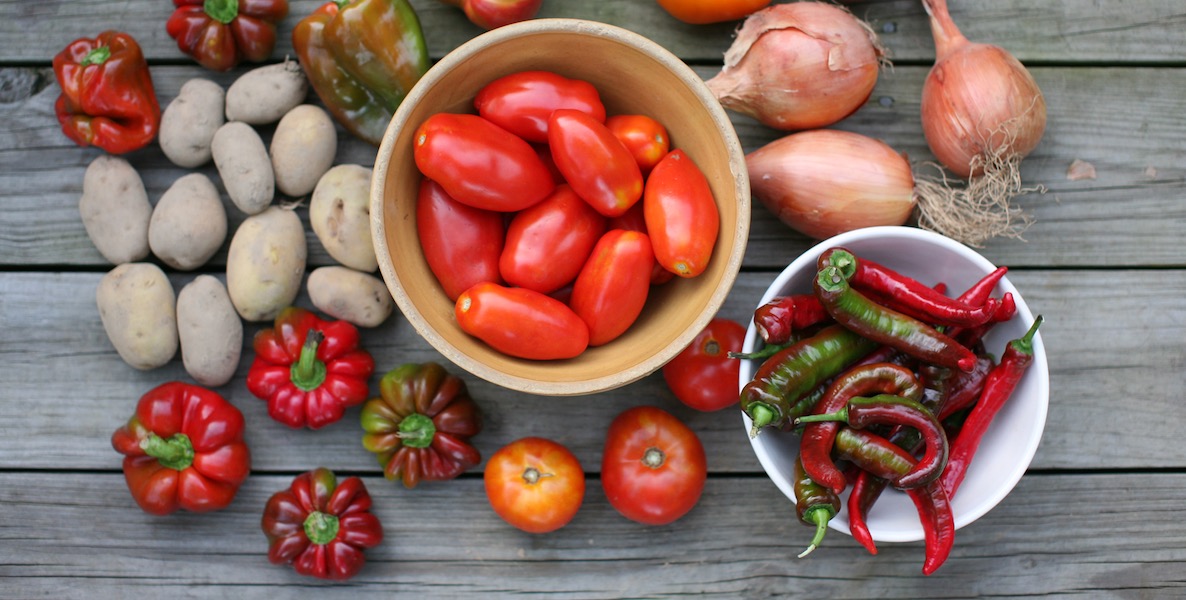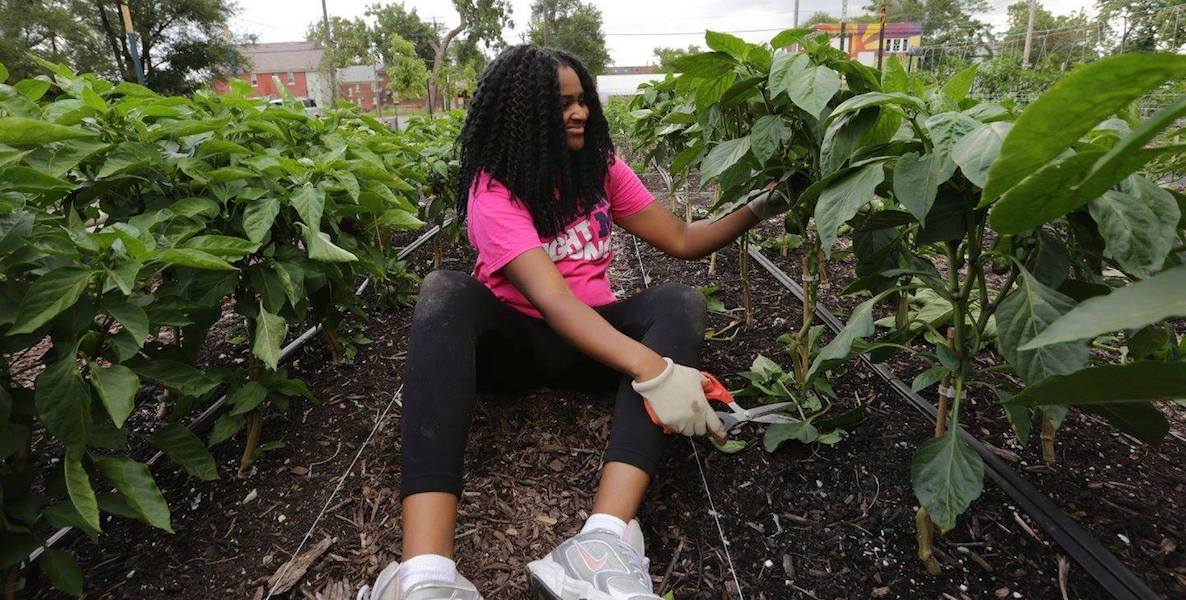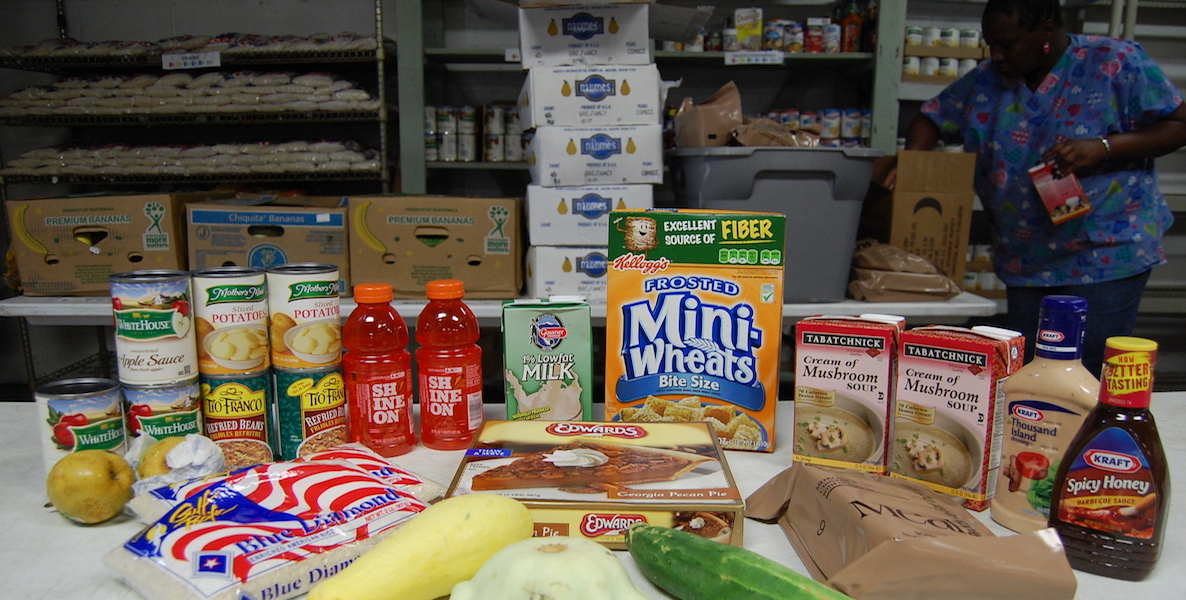Washington High School, in rural North Carolina, wouldn’t seem to have anything in common with urban Philadelphia. But with a poverty rate at over 20 percent, it shares at least two devastating problems with the city: rampant hunger—and the shame that often goes along with it.
So a few years ago, the students and administrators at the school launched a novel idea to solve both problems: an anonymous food pantry. Students who had no lunch often were too embarrassed to line up for free food. And some would tell no one, except maybe the principal, that their home was also missing basics, like toothpaste. Now those students at Washington High can discreetly ask teachers for access to the food pantry, where throughout the day they can get their hands on a number of goods, donated by the school community and a local nonprofit, from snacks to toiletries.
There’s no sign-in-sign-out tracking of who takes what at Washington High School’s food pantry, just a system that respects the pride and feelings of the kids who, through no fault of their own, need food or some paper towels at home. Similarly, anonymous food pantry programs have opened at colleges around the country, like University of Nebraska-Lincoln, where students don’t have to sign any paperwork or join a program to get their hands on a bite to eat—they just need to swipe their student ID card at the door. And Philly area colleges are getting in on the anonymous food pantry game too: One recently opened up at West Chester and Rowan universities, and Temple is reportedly considering the idea.
In an ideal situation, no one would need food banks. Barring that, an anonymous system could work like this: Food bank users would be able to call ahead and schedule a time during which they could arrive at the facility and pick up goods they need; they could also, perhaps, take part in a discrete delivery service, which would bring goods to homes midday.
The shame associated with hunger is not limited to students, of course. Studies have pointed to the social stigma of nutritional assistance use, from SNAP benefits to food pantries. And this is certainly true in Philly, where the hunger problem is real and widespread: According to the Hunger Project, one in five Philadelphians is at risk of going hungry every day. And with social service benefits being threatened under the Trump Administration, that number could very well grow.
Applying the idea that public schools and universities the nation over are beginning to adopt could go a long way to resolving both shame and hunger. First, though, we’d need to change the system—and provide food service organizations with more staff, and more funding.
Right now, to access food banks that receives federal funds—which is most of them—you need to be registered for government assistance, which means announcing yourself as hungry. Unlike at Washington High, you have to show up at predetermined times, when habitually understaffed pantries are open—which means arriving with everyone else, the least anonymous way possible. And you have limits on what you can take, so pantries can spread thin the items they have; staff keep meticulous records of everything.
Given all those restrictions, anonymity takes a back seat. But as Steveanna Wynn, who runs Philadelphia’s SHARE Food Program, which distributes food to and helps manage Philly-area food banks, it shouldn’t. Wynn says food insecurity is reaching a level that hasn’t been seen in generations. But many people who may feel the effects of entitlement cuts, she thinks, will be put off from using food banks and food pantries because of social stigma.
“It can absolutely be done discretely,” Wynn says. “You just need to decide whether you can do it that way.”
Wynn plans to talk with SHARE’s network of food banks about ways to emulate the anonymous model. To her mind, we’re fewer than 60 years from a culture that reflexively looked out for its most vulnerable—and she thinks, maybe, that we can get there again.
Studies have pointed to the social stigma of nutritional assistance use, from SNAP benefits to food pantries. And this is certainly true in Philly, where the hunger problem is real and widespread: According to the Hunger Project, one in five Philadelphians is at risk of going hungry every day. And with social service benefits being threatened under the Trump Administration, that number could very well grow.
“When I grew up in rural Virginia in the 50’s and 60’s, there were things like food cupboards in school. There were clothing cupboards. So that when the teacher recognized that you needed something, you were taken to the food cupboard or the clothing cupboard, and you got whatever you needed,” says Wynn. “This isn’t a new thing, but it’s something that people are realizing that they need in their communities.”
In an ideal situation, no one would need food banks. Barring that, an anonymous system could work like this: Food bank users would be able to call ahead and schedule a time during which they could arrive at the facility and pick up goods they need; they could also, perhaps, take part in a discrete delivery service, which would bring goods to homes midday.
These kinds of measures, says Wynn, would take the edge off of the process for most new food bank users, who are often both uncomfortable with their new situation and very self-conscious. After all, she says, most people who are new to food banks have just unexpectedly lost relatively steady jobs and had no time to prepare, or lost one of two jobs that they had to help keep their family afloat; it’s a massive shift to go from total self-reliance to having to rely on the kindness of strangers.
Two things are obviously needed to make this happen: more volunteers and more money. The former is a problem that can conceivably be solved; the latter, less easily so, especially under the new presidential administration. As Wynn sees it, increased healthcare availability and a livable minimum wage are the best ways to keep people from having to use food banks, and she fears that with Medicaid about to be converted into strict block grants and a hyper-conservative cadre in charge of Congress during a time when a federal minimum wage increase is most needed, things are about to get really difficult for already dangerously-overextended food banks.
“More people are already using food cupboards than ever before,” she says. “And a lot more are going to be using them soon.”
While the federal government is almost certainly not going to ride in on a white horse and provide succor to hungry Philadelphians, we can pick up some of the slack. Food banks across Philadelphia, small and large, are in need of volunteers and donations of both cash and goods. While total discretion and anonymity for food bank users may be a ways off—at least one Congress and perhaps a president away—you can do your part in improving things for them by simply contributing your time, cash and canned goods.
Photo via Flickr






